‘Killing the Travellers’ rekindles the fight for justice in Sri Lanka’s forgotten Kurukkalmadam massacre
By Ahsan Afthar
The screening of a powerful documentary and panel discussion held on July 30 at the Lakshman Kadirgamar Institute brought renewed focus to a long-overlooked tragedy: the Kurukkalmadam massacre of 1990, in Sri Lanka’s Eastern Province.
By Ahsan Afthar
The screening of a powerful documentary and panel discussion held on July 30 at the Lakshman Kadirgamar Institute brought renewed focus to a long-overlooked tragedy: the Kurukkalmadam massacre of 1990, in Sri Lanka’s Eastern Province. The film, Killing the Travellers, produced by independent filmmaker Baazir Kaleelur Rahman, revisits the targeted abduction and brutal killing of Muslim civilians – including Hajj pilgrims – near Kattankudy, allegedly by the Liberation Tigers of Tamil Eelam (LTTE).
Through this work, Rahman draws attention to the suffering of a community often excluded from official narratives and post-war justice efforts.
Organized by the Academy for Social Justice and Activists Without Borders, the event featured a diverse panel of peacebuilders, human rights activists, and community leaders, who echoed a shared message: justice must be universal, memory must be inclusive, and reconciliation must be rooted in truth.
I made this film to fight silence and erasure
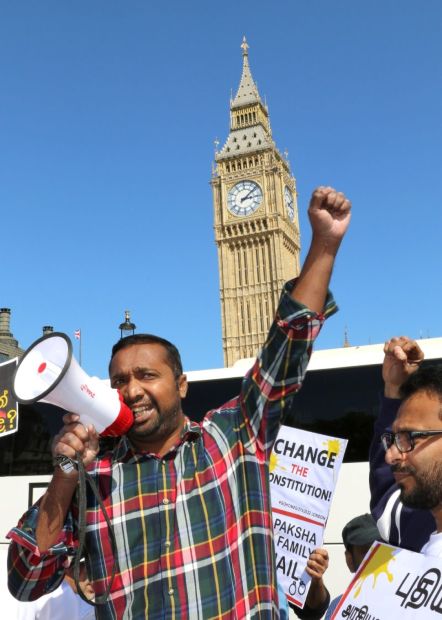
Speaking through a video message prior to the panel discussion, filmmaker Baazir Kaleelur Rahman explained his motivation: “I made this film to make sure people don’t forget what happened, and to speak up for those whose stories have been ignored.”
He said the documentary seeks to do three things: keep memory alive, demand justice for victims and survivors, and offer lessons to future generations.
“Over the years, Sri Lankan Muslims, especially in the East, have been left out of truth commissions, UN reports, and peace efforts. Their pain is rarely spoken about,” said, but emphasized that Killing the Travellers is not about assigning blame, but about truth-telling and honouring all victims.
“This film says clearly: all crimes must be recognized – no matter who committed them – whether it was the LTTE, government forces, or any other group,” he noted.
She was just an ordinary girl
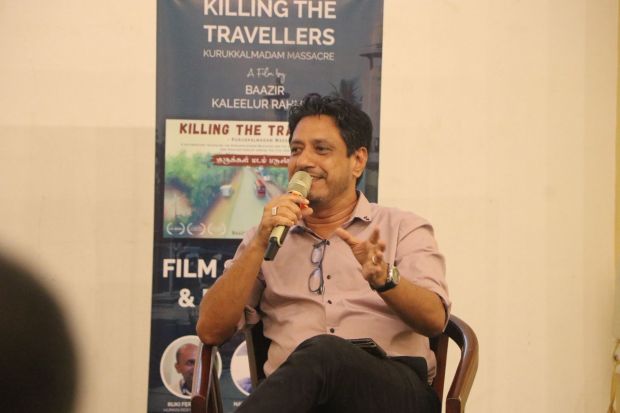
Opening the panel, Nawaz Mohammed, Chairman of RISE Sri Lanka, shared a personal account of his sister’s abduction and his mother’s lifelong trauma. “She wasn’t political. She didn’t care about the government or the LTTE. She was an ordinary victim. Just like those in Jaffna or Kokkadicholai – ordinary people caught in extraordinary violence.”
Nawaz, whose own sister was abducted during the incident that claimed many lives in Kattankudy, warned of the dangers of ignoring such stories: “If we fail to deliver justice or even acknowledge the pain of victims, we risk returning to the past – or worse.” He also highlighted the economic embargo imposed by the LTTE on Kattankudy when residents refused to pay ransom, forcing traditional paddy farmers to adapt to trade and business.
Nawaz emphasized the importance of addressing past grievances and building solidarity across ethnic divides. “We haven’t yet reached the point where we advocate for justice beyond our own communities. That limits all of us.”
These are crimes, not just tragedies
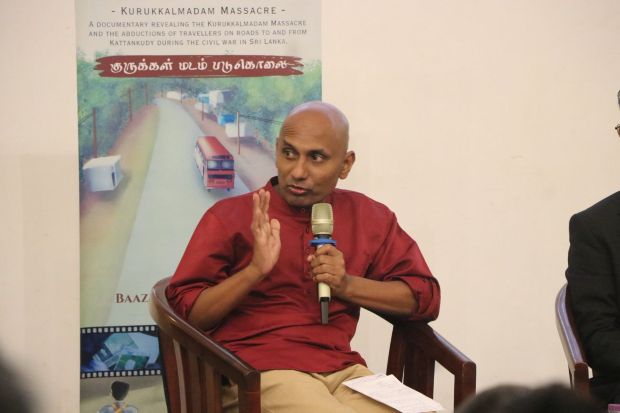
Ruki Fernando, a veteran human rights activist, examined the events through legal and political lenses. “These are not just stories of grief. They are violations of international humanitarian law. Attacks on civilians are war crimes, whether committed by state forces or non-state actors,” he said.
Fernando commended Baazir’s film for giving voice to ignored narratives but warned against ethnic silos in justice efforts. “When we speak about Tamil victims, it’s Tamils in the room. When it’s Muslims, only Muslims attend. That must change. Justice must be built on cross-ethnic solidarity.”
He also pointed out Sri Lanka’s long pattern of state inaction, noting that despite reports submitted to various governments, institutions have largely failed to act. “The judicial process in 2025 must not become another delay tactic. We cannot keep victims waiting for decades.”
Justice must live in our conscience
Arkam Nooramith, General Secretary of the All Ceylon Jamiyyathul Ulama, called justice both a divine promise and a civic duty. “Even if justice is not served in this life, it will be in the hereafter. But that doesn’t mean we stay silent now.”
He noted that too often, communities only speak when their own are affected. “When Tamil victims cried for justice, many of us stayed silent. That silence was a mistake. Justice must not be filtered through identity.”
Quoting the Prophet Muhammad (peace be upon him), he added: “If you lose the courage to look the oppressor in the eye and say, ‘You are an oppressor,’ then you have lost all goodness.”
The question is why?
Former parliamentarian M.M. Zuhair PC commended the film’s emotional power but raised a critical question: “Why did the LTTE carry out this massacre? It wasn’t just because the victims were Muslims. It was because they refused to support the LTTE’s separatist project.” He contended that the Muslim community’s political neutrality made it a target. “They weren’t aligned with the LTTE’s goals. That made them a threat. That’s the hard truth many don’t want to address.”
Zuhair criticized international reports for sidelining Muslim experiences. “A major international report last week detailed atrocities against Tamils and during the JVP uprising—but not a word on massacred Muslims. That erasure is painful.”
He called for honest reflection on the root causes of radicalization: “If a child grows up hearing that 103 people were murdered in a mosque and no one was held accountable, can we really be surprised when that trauma festers?” This statistic refers to the 1990 Kattankudy mosque massacre, where 103 Muslim men and boys were killed while at prayer.
A Sri Lankan model is possible
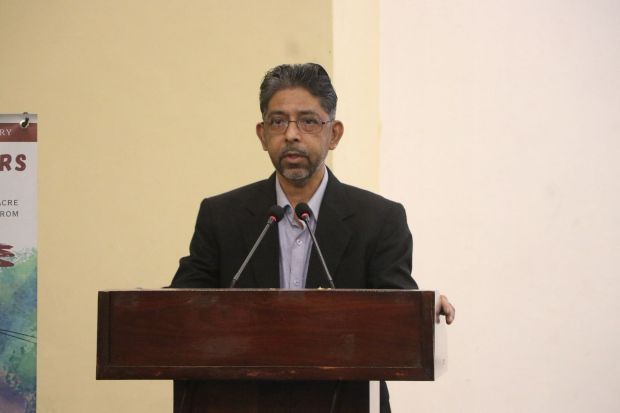
Moderator Naja Mohammed, Chairperson of the Academy for Social Justice, emphasized the importance of sustained and inclusive action: “The state must lead—but communities must also mobilize. We need to do better in documentation, advocacy, and outreach.”
He acknowledged that Muslim issues often lack wider engagement: “If this were about Tamil victims, the room would be filled with diplomats, civil society, and media. Why are we not reaching out—or are others not listening?”
He ended with a hopeful appeal: “The people featured in Baazir’s film are already living coexistence. They remember the war but want peace. Politics divides us—but everyday people want healing.”
Naja urged the newly elected NPP government to act on its promises: “They have a rare opportunity. Let them not waste it. A just and peaceful Sri Lanka is still within reach—if we build it together.”
Killing the Travellers has been screened in Kattankudy and Puttalam, and is also available for viewing on the Activists Without Borders YouTube page, allowing a wider audience to engage with these crucial narratives of justice and remembrance.
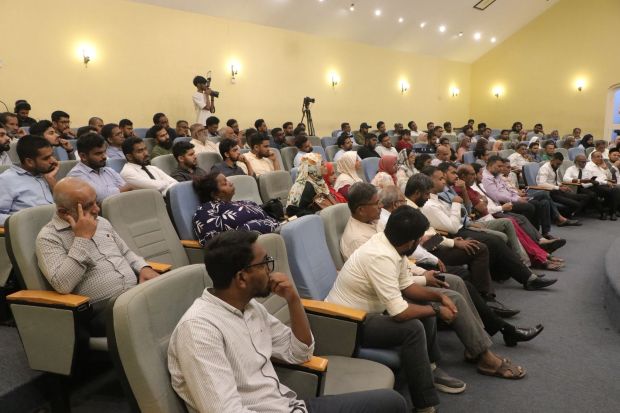
-ENCL


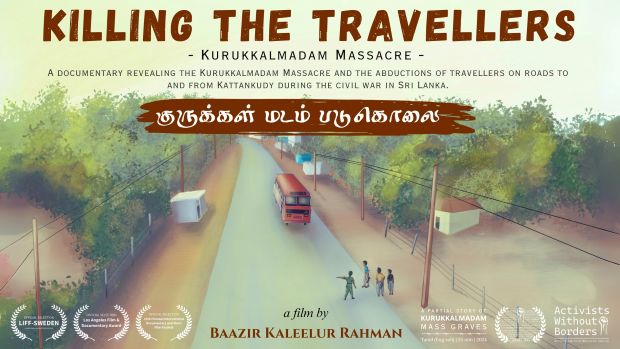
Comments are closed, but trackbacks and pingbacks are open.